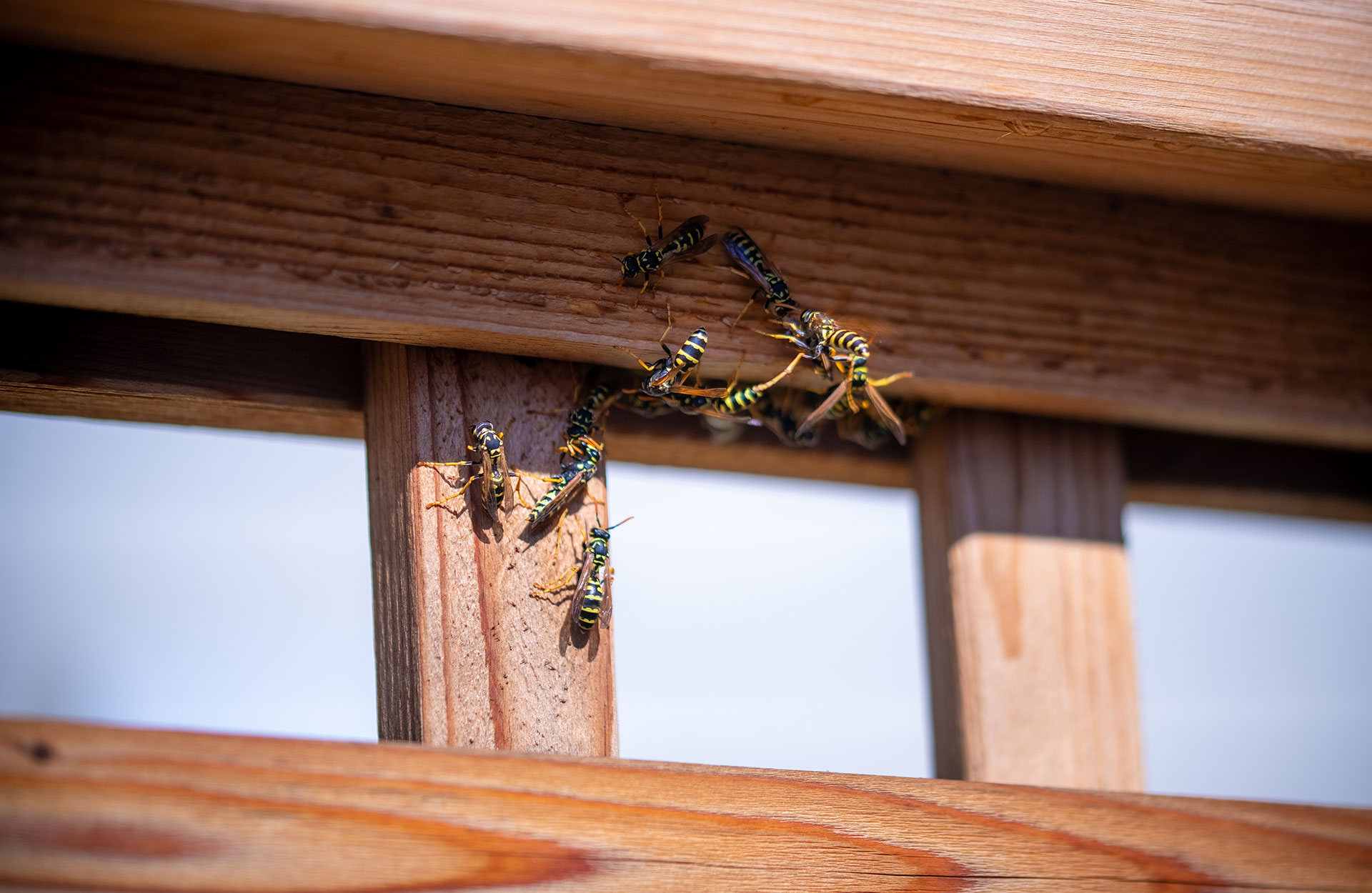Why Bee Activity Peaks in Spring and How to Stay Safe

Spring in Massachusetts brings flowers and warm weather, but also more bees, hornets, wasps, and yellow jackets. As the weather warms, these insects wake up from hibernation, search for food, and build nests. Understanding why there are more of them in spring and knowing how to stay safe can help protect your home and family. The Bee Hunter can help by removing stinging insects safely from your property.
Why Do Bee and Wasp Populations Increase in Spring?
Spring is when bees and other stinging insects start their reproductive season. As the weather gets warmer, queen bees and wasps wake up from hibernation and start new colonies. Here’s why their activity increases:
- Nest Building: Queen wasps and hornets look for places to build nests, often in eaves, trees, or walls.
- Foraging for Food: Worker bees and wasps become busy looking for food like pollen, nectar, and protein for their colonies.
- Warmer Weather: The warmer weather makes insects move faster and search more for food.
By late spring and early summer, these colonies grow fast, and this increases the chance of meeting with one of these insects.
Safety Tips for Avoiding Stings
Here are great simple tips to avoid getting stung:
- Be Careful Around Food: Cover food and drinks to avoid attracting wasps or yellow jackets.
- Wear Light Colors: Dark clothes or floral prints can attract bees and wasps.
- Seal Gaps Around Your Home: Look for cracks or holes in your home where bees or wasps might build nests and seal them.
- Stay Calm Around Bees: If a bee or wasp comes near you, don’t swat. Move away slowly.
- Avoid Strong Scents: Perfumes, lotions, and scented hair products can attract these insects.
- Check for Nests Often: Look for signs of nests on your property and deal with them before they get bigger.
- Be Careful When Yardworking: Mowing the lawn or trimming trees can disturb hidden nests.
- Teach Kids About Insects: Show kids how to recognize bees and wasps, and teach them not to disturb nests.
Why Choose Professional Removal Over DIY Solutions?
You might want to deal with bee, hornet , or wasp nests on your own, but that can be really dangerous. This is why professional removal is the safest way to go:
- Safety First: Trying to remove a nest can make the insects angry and lead to painful stings, especially if you’re allergic.
- Proper Identification: Different insects need different treatments. Experts at Bee Hunter can identify them and use the best method to remove them.
- Prevention: Professional removal can stop more nests from forming in the future.
- Eco-Friendly: Bee Hunter uses safe and humane methods that protect people and pollinators.
- Guaranteed Results: DIY methods often don’t work. Bee Hunter will ensure the whole colony is out of your home, so you don’t have to worry about them ever returning.
Call Bee Hunter for Expert Stinging Insect Removal in Massachusetts
At Bee Hunter, we understand the risks stinging insects bring. We’re here to help with safe, professional removal services. Whether you’ve found a nest or want to prevent one, our team is ready to assist you.
Don’t let stinging insects ruin your spring—contact Bee Hunter today for expert stinging insect removal in Massachusetts! Call now for a free consultation!
